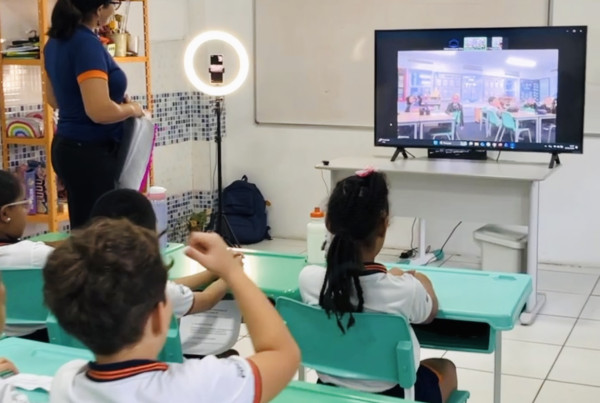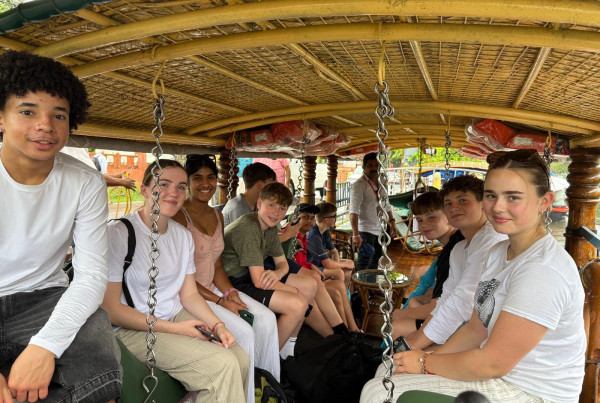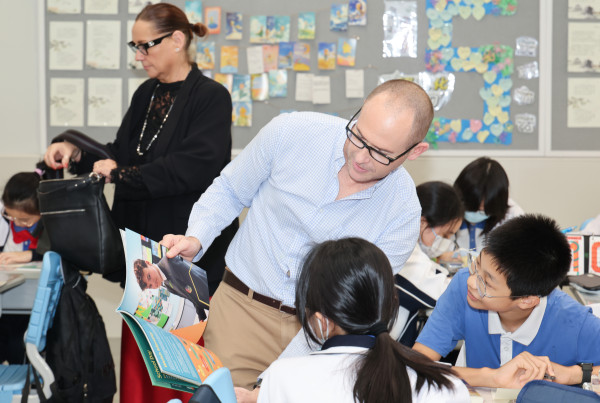Stewart Cook, Assistant Headteacher at Frances Olive Anderson Primary School, Lincolnshire, discusses the importance of long-term mutual engagement and their 12-year partnership with Lebanon.
Frances Olive Anderson Primary School and Mohammad Shamel State School have struck up an unusual twinning arrangement.
This partnership has been a truly inspirational experience for the last 12 years, not just for the schools but also for the local community and beyond. Since its inception in 2011, we have taken part in over 90 projects ranging from sustainable development to food, children’s rights to inclusion. Through our partnership, school staff, parents, and students have been exposed to insights and experiences from the other country which broke stereotypes, gave new insights, and opened an “emotional hotline” for British, and Lebanese students and refugees in Lebanon during the wars in Iraq and Syria. During the COVID lockdowns, the project became a very important outlet for the children. During this period of home-learning, we continued with our projects, and the interactions between the children became the highlight of their week and made them realize that this was a worldwide issue and not just affecting them. This partnership added depth to the student’s learning by underpinning current issues that they are facing or hearing about.
Moreover, what helped this partnership is the face-to-face connection. The first exchange visits to Beirut and Lincolnshire took place in September and May of the academic year 2012-2013, and this helped to firmly embed the partnership within the schools and helped to build the children’s enthusiasm for the project. Since then, we have secured funding for four more teachers’ reciprocal visits.
With the issue of refugees being constantly in the news, we felt it was more important than ever to give our children the skills to deal with controversial issues. What better way of doing this than from children who have experienced it first-hand? Mohammad Shamel School hosts a large number (currently around 400) of Syrian, Palestinian, and Iraqi refugee children.
Through this project, we are encouraging the students to see refugees as more than just numbers in need of aid but as the people that they are. We are providing our students with tools to take action and not just “admire” a problem. The reason the pupils enjoy the work is that they get to apply what they learn in class in a real-world context; it personalizes their learning.

Looking for a partner school?
The Global School Alliance are the leader in global partnerships for schools. We guarantee to match your school with a school in our community based on your learning priorities and we will always try to find a partner school in your first choice location.
Throughout our projects, we use video calls to link our classes virtually. This use of digital citizenship empowers the children to reap the benefits of digital technology in a safe and effective way. When children learn something or see something being done by their peers, it has a bigger impact on them. If they see this directly from their peers in another country, it has added value; it offers students the opportunity to see their world differently, appreciate that it is fragile, and most importantly, to speak up when it is at risk. This virtual face-to-face engagement between the pupils is by far the most inspirational and important part of the partnership. First, it challenges pupils’ and parents’ images, perceptions, and stereotypical views of the Middle East and Lebanon. It connects all the dots in the partnership, gives a real-life context, and a real audience for their work. It motivates pupils in the UK to learn Arabic phrases and offers pupils in Lebanon an opportunity to speak and practice what they are learning in English. This safe environment is a place where pupils can work on their self-esteem, believe in themselves, accept differences in other cultures and communicate freely. It has simply brought the world into the classes in these two schools and helped in creating global citizens who are always ready to evolve and develop.
As proud members of the Global School Alliance, we would encourage every school to get involved with and develop those very valuable opportunities to have face-to-face engagement. These long-lasting impactful encounters are hugely important for everyone across the school community.





